Business & Management
Makerere Researchers Advocate for Efficient Use of Water and Environmental Resources at 8th Uganda Water and Environment Week
Published
11 months agoon
By
Jane Anyango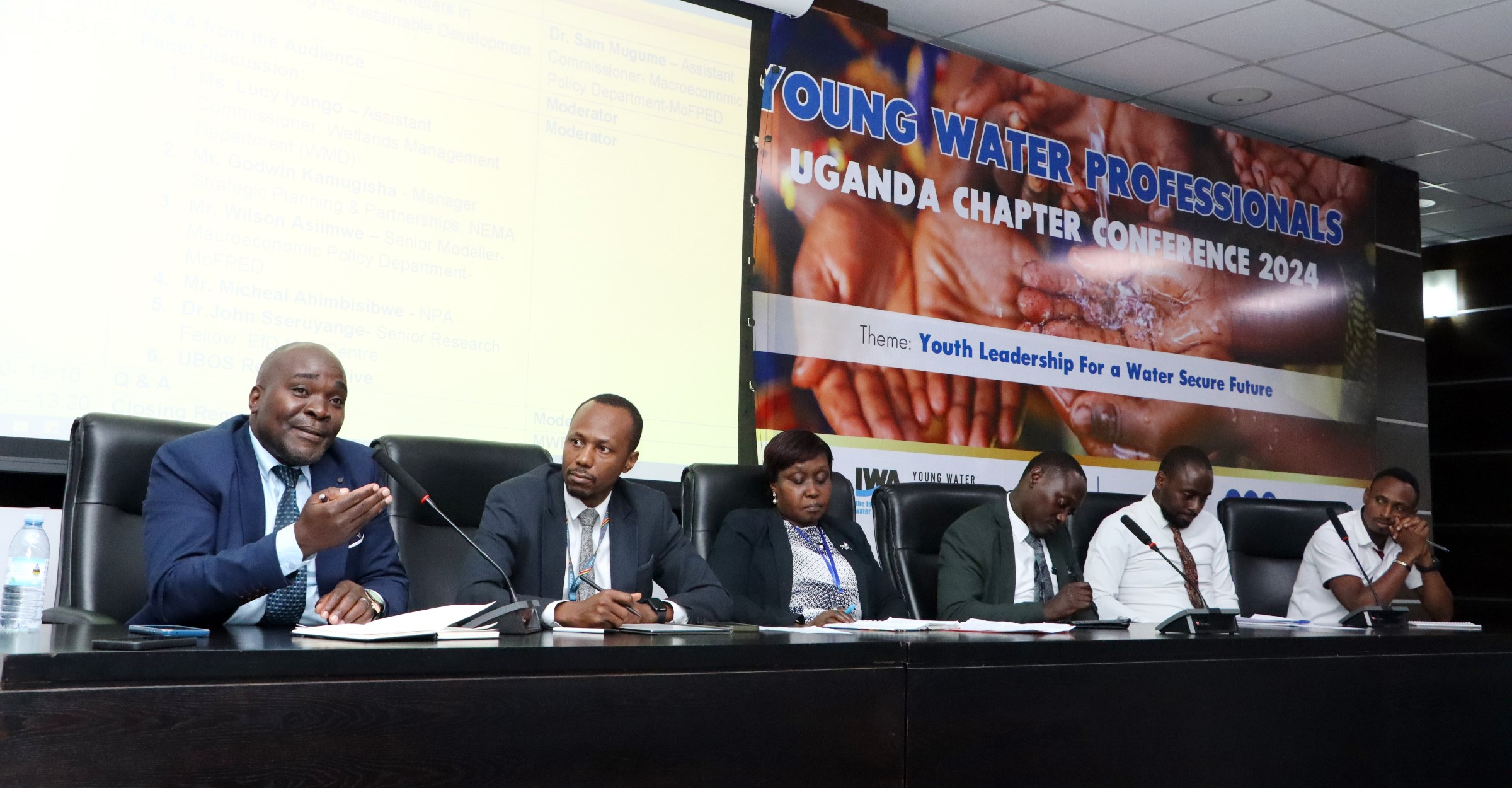
At the 8th Uganda Water and Environment Week (UWEWK 2025), held from March 17 to 21 at the Ministry of Water and Environment’s headquarters. Makerere University researchers called for more efficient management of water and environmental resources. The event, organized by the Ministry of Water and Environment (MWE) through the Water Resources Institute brought together stakeholders from various sectors to discuss challenges and solutions related to water, environmental sustainability, and climate change.
The theme of UWEWK 2025, “Water and Environment Resources for Enhanced Resilience and Improved Incomes and Livelihoods,” focused on promoting sustainable use of natural resources to enhance resilience and improve livelihoods. The week-long event also commemorated International Forest Day, World Water Day, and World Meteorological Day.
Prof. Edward Bbaale, Director of the EfD-Mak Centre, delivered a keynote address on “Equitable and Sustainable Use of Water and Environmental Resources for Improved Incomes and Livelihoods.” Participating via Zoom from an Inclusive Green Economy workshop in Ethiopia, Bbaale emphasized the critical role of water in economic development, particularly in sectors such as agriculture, energy, health, and industrialization.
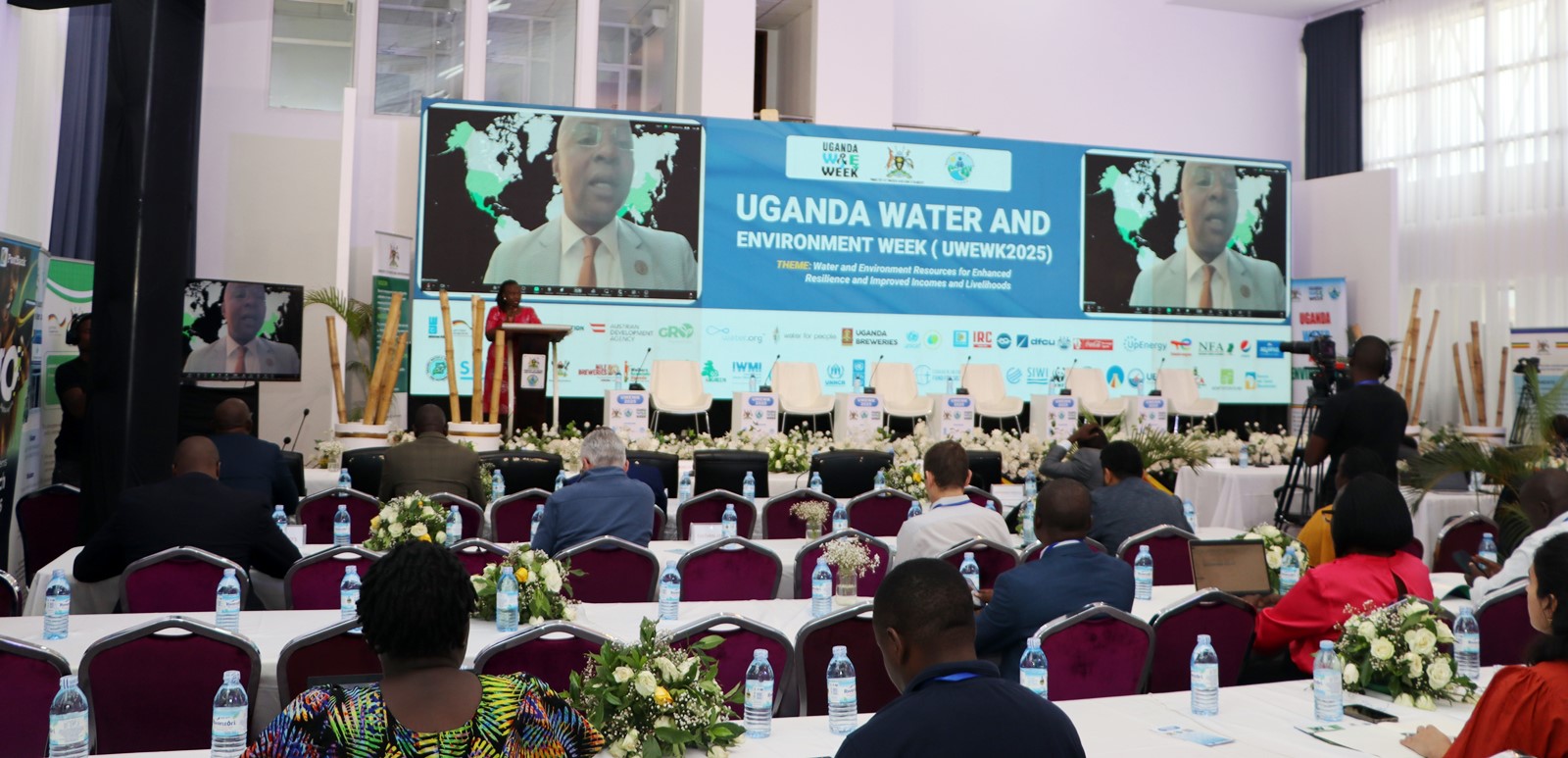
“Water is fundamental to the success of many sectors. It influences health, education, agriculture, and energy, all of which are integral to economic growth,” Prof. Bbaale stated. He noted that water is vital for manufacturing, services, and industrialization, and is a primary energy source in Uganda, where the country heavily relies on hydroelectric power. Globally, agriculture accounts for about 70% of freshwater use, and water is also crucial for transportation and the health of ecosystems.
However, challenges such as climate change, pollution, and resource mismanagement continue to threaten water availability and access. Prof. Bbaale referenced global data showing that 40-70% of developing countries face a lack of access to safe drinking water, exacerbating inequality and sparking conflicts. He also highlighted the economic implications of water scarcity, citing the example of India, where over-extraction of groundwater could lead to a 6% GDP loss by 2030.
In Africa, despite possessing some of the world’s largest freshwater systems, over 400 million people lack access to safe drinking water. Prof. Bbaale pointed to the shrinking of Lake Chad and the geopolitical tensions surrounding the Grand Ethiopian Renaissance Dam on the Nile, emphasizing the need for cooperative water management. In Uganda, water bodies like Lake Victoria face pollution from industrial waste, untreated sewage, and agricultural runoff, threatening the livelihoods of millions dependent on the lake.
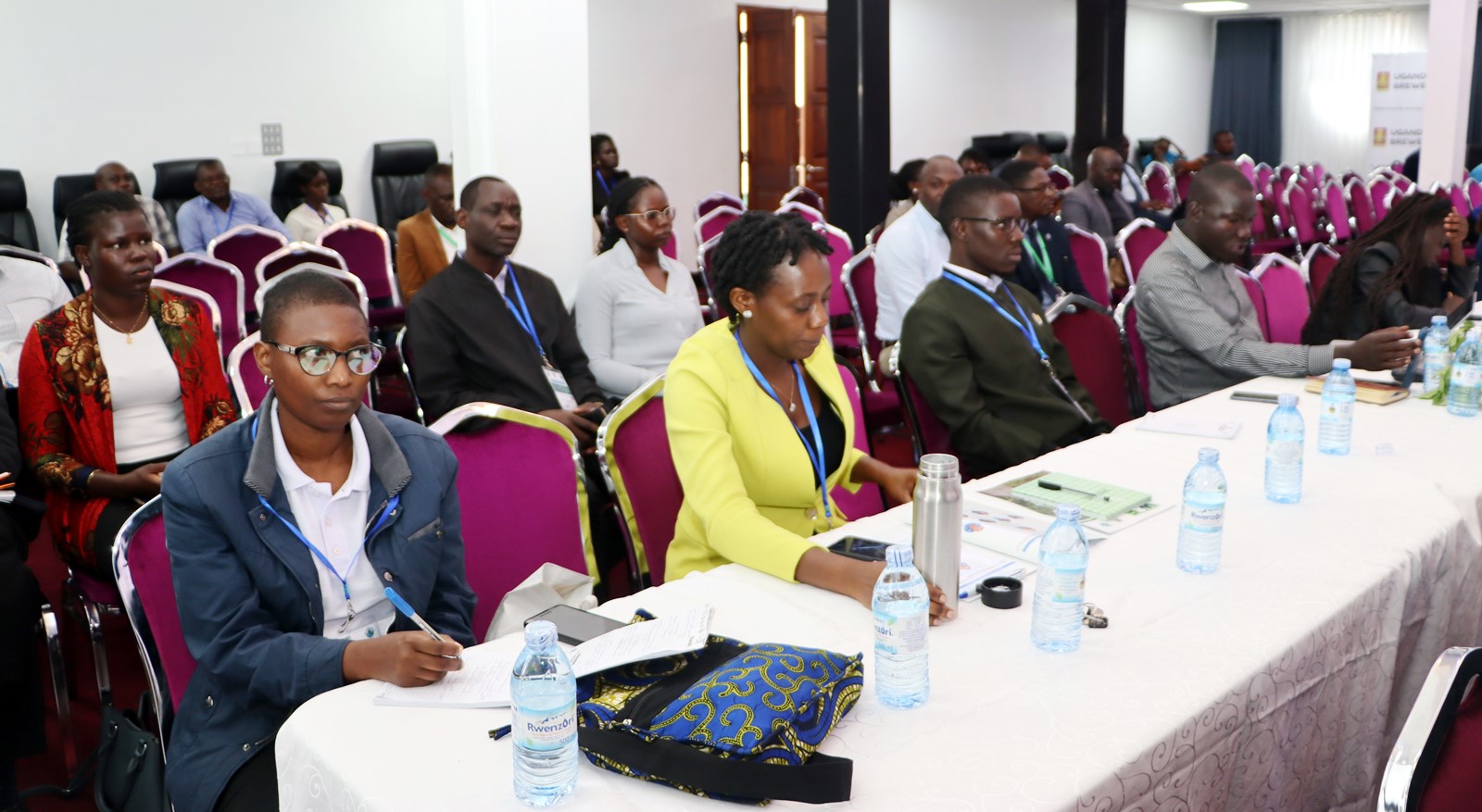
Prof. Bbaale also shared success stories of sustainable water management, highlighting Singapore’s water self-sufficiency model, Israel’s efficient use of recycled water for agriculture, and the Netherlands’ world-class flood management systems. He urged African nations, including Uganda, to adopt similar strategies to ensure the sustainability of water resources.
“Water scarcity, if not addressed, could lead to social unrest and significant economic losses. However, with proper management, water resources can drive industrialization, trade, and job creation,” Prof. Bbaale concluded, calling for continued investment in sustainable water practices, such as expanding irrigation coverage and promoting clean energy.
A Robust Natural Resource Accounting Required to Support Sustainable Development in Uganda – Dr. John Sseruyange
In a parallel session, Senior Research Fellow Dr. John Sseruyange participated in a policy dialogue on Natural Capital Accounting for Nature Positive Economic Planning, discussing the efforts of the EfD-Mak Centre at the National Water and Sewerage Corporation.
Dr. Sseruyange emphasized the need for a comprehensive approach to natural resource accounting in Uganda, noting that while natural capital—such as forests, wetlands, and water—is crucial to the nation’s economy, its evaluation has often been too narrow. Resources like land, fisheries, and marine assets are frequently overlooked in discussions.
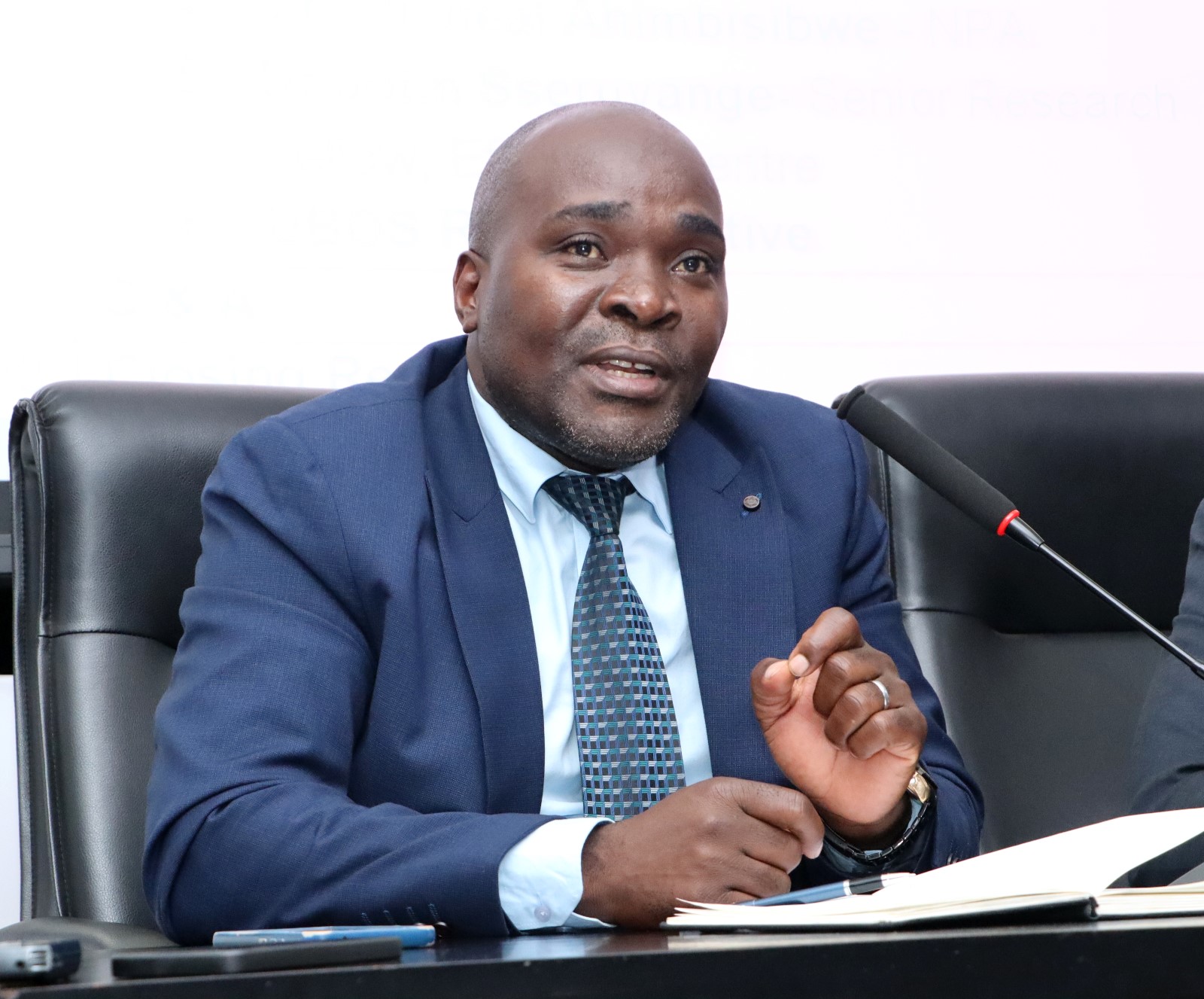
“Natural capital is often misunderstood and narrowly defined,” Dr. Sseruyange explained, stressing that a broader approach is necessary to understand Uganda’s true natural wealth. He pointed out the historical undervaluation of natural resources by policymakers, highlighting that while depreciation of physical capital is considered in the country’s net national product (NNP), the degradation of natural resources such as land, water, and ecosystems is not factored in. This imbalance limits Uganda’s ability to fully account for its wealth and economic potential.
Dr. Sseruyange also discussed the role of the Environment for Development (EfD) Mak Centre, which conducts collaborative research with government agencies and local stakeholders to ensure that findings are grounded in real-world issues and relevant to policy development. The center’s Inclusive Green Economy (IGE) program trains senior civil servants on critical environmental topics like forestry, biodiversity, and energy efficiency, particularly in Uganda’s transport sector.
The EfD-Mak Centre’s research has also focused on energy efficiency and emission reduction in Uganda’s transport sector. Research teams have worked with stakeholders, including border-border operators and taxi drivers, to gather data and refine policies that can impact Uganda’s environmental and economic future.
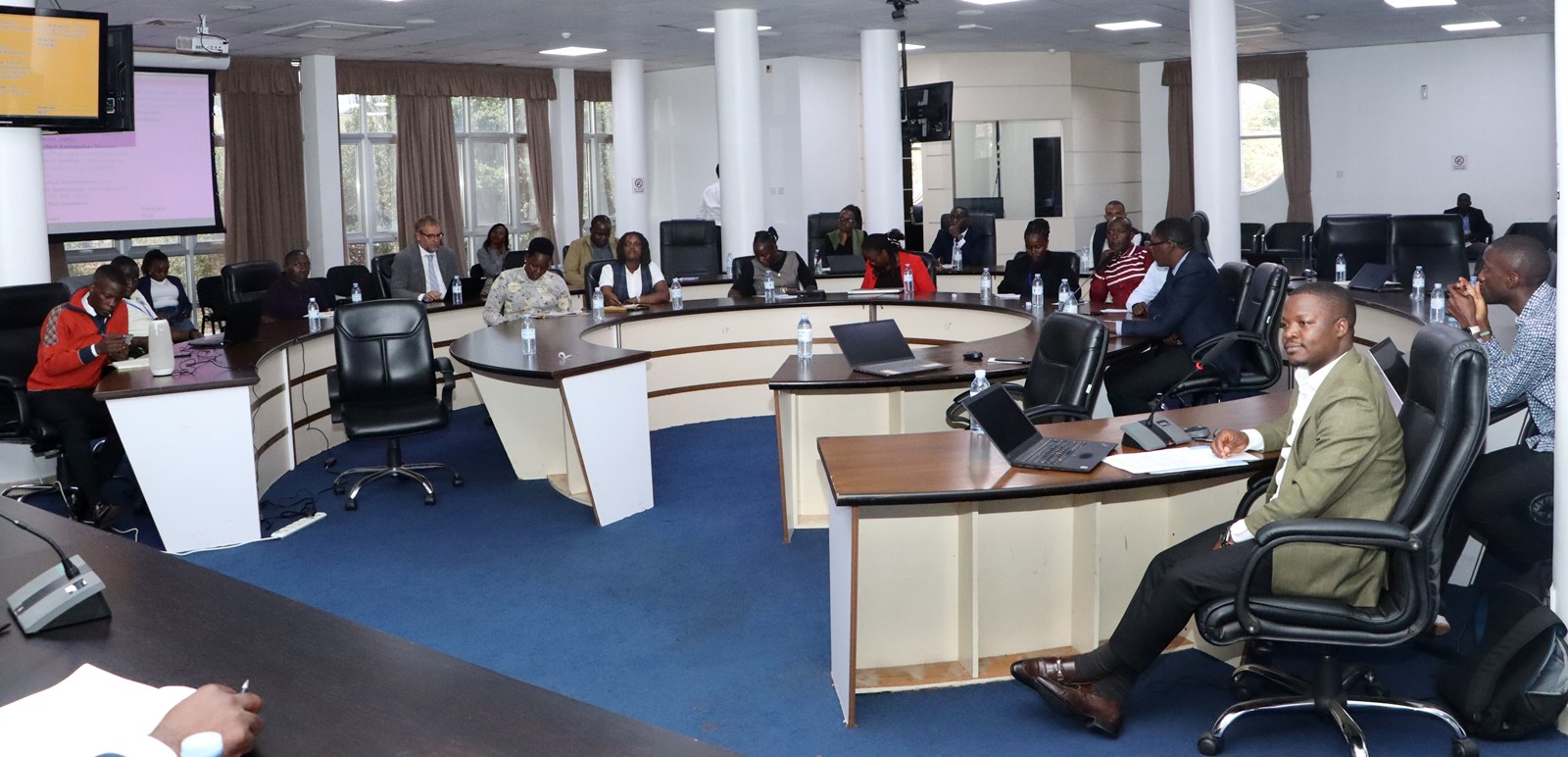
“We don’t just write papers; we take our findings to local governments and communities to gather feedback and integrate it into our work,” Dr. Sseruyange stated, emphasizing the practical application of research to inform policymaking at all levels. He also stressed the importance of making technical research accessible to policymakers and the public, ensuring that it can be acted upon.
The session concluded with a call for continued collaboration between researchers, government agencies, and local communities to improve Uganda’s natural capital accounting. Such efforts are essential to enhancing environmental resilience and advancing sustainable economic growth.
Call for Urgent Adaptation Measures to Safeguard Uganda’s Agricultural Sector from Climate Variability
Dr. Peter Babyenda, the IGE Engagement Specialist, presented a paper during the side event under the theme Sub-theme 2: Water and Environment for Climate Action. His paper, titled “Adaptation to Climate Variability Safeguards Welfare Loss in Uganda,” focuses on the critical need for effective climate adaptation strategies to protect the welfare of Uganda’s rural farming households.
Presenting via Zoom from an Inclusive Green Economy workshop in Ethiopia , Babyenda stressed that Uganda is highly vulnerable to the impacts of climate variability, with about 68% of households relying on rain-fed agriculture for their livelihoods. According to Babyenda, this dependency makes Ugandan farmers particularly susceptible to extreme climate events, including floods, droughts, altered rainfall patterns, and rising temperatures. These changes, Babyenda explained, not only threaten food security but also exacerbate poverty.
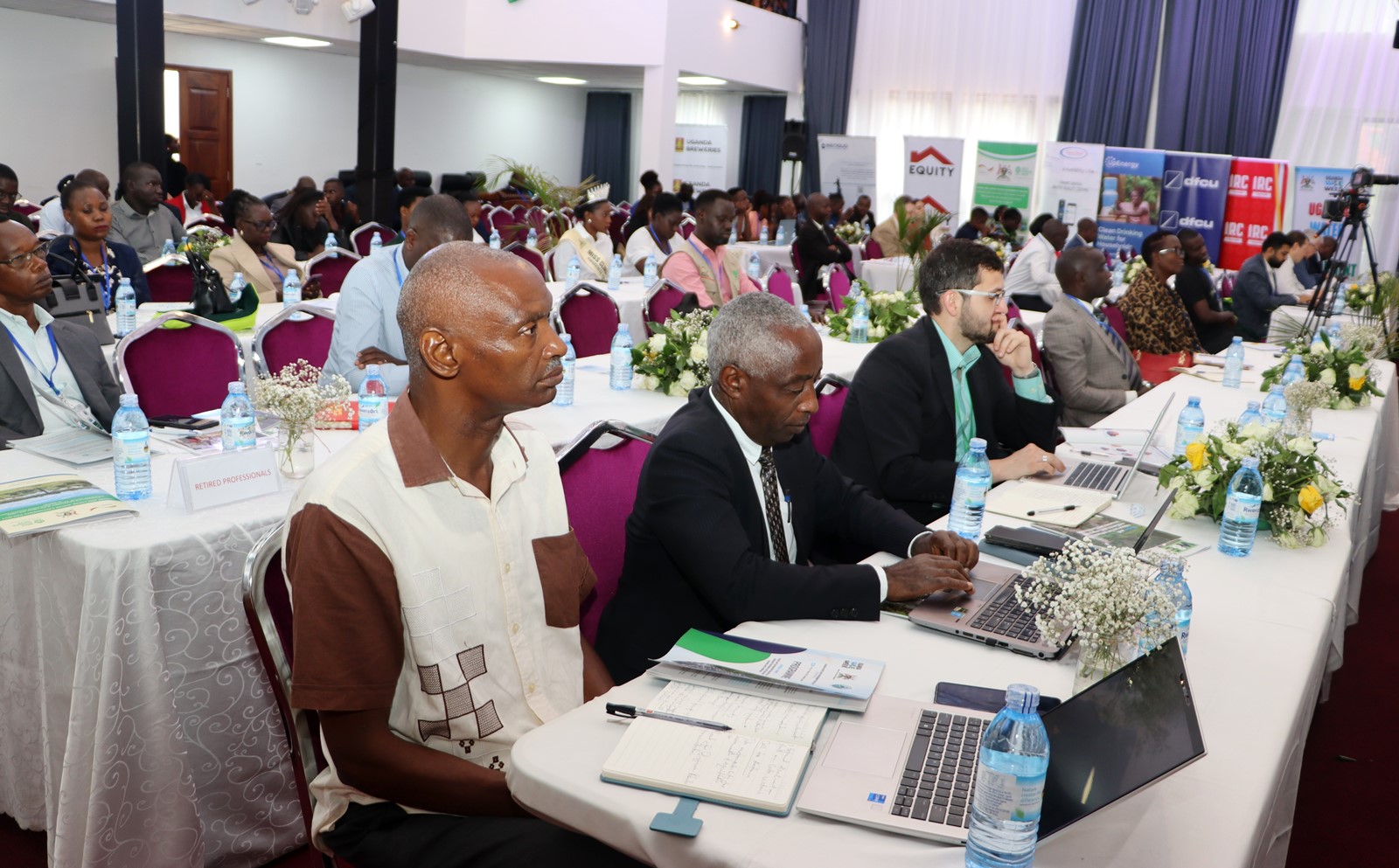
“Climate variability is no longer a future threat – it is a present reality for millions of Ugandans,” said Dr. Babyenda. “Effective adaptation measures can mitigate these impacts and significantly improve the welfare of farming households.”
In his presentation, Dr. Babyenda used data from six waves of Uganda National Panel Surveys (2009-2019) and historical climate data from National Oceanic and Atmospheric Administration, spanning the years 1979-2013, to assess the impact of climate variability on household welfare. He also applied the Endogenous Switching Regression model to evaluate the effect of adaptation decisions made by farming households.
The study revealed that households that adopted climate adaptation strategies saw a measurable increase in their welfare, with an average gain of 4,054 Uganda shillings (approximately $1.2) per adult equivalent. However, Dr. Babyenda highlighted that while some adaptation measures proved beneficial, not all were immediately advantageous. The initial costs of adaptation can result in short-term losses, but over time, the benefits outweigh these challenges.
“Farmers who adapt to climate variability generally experience less damage to their livelihoods compared to those who do not,” Babyenda noted. “However, the key to success lies in identifying the most effective and affordable adaptation measures.”
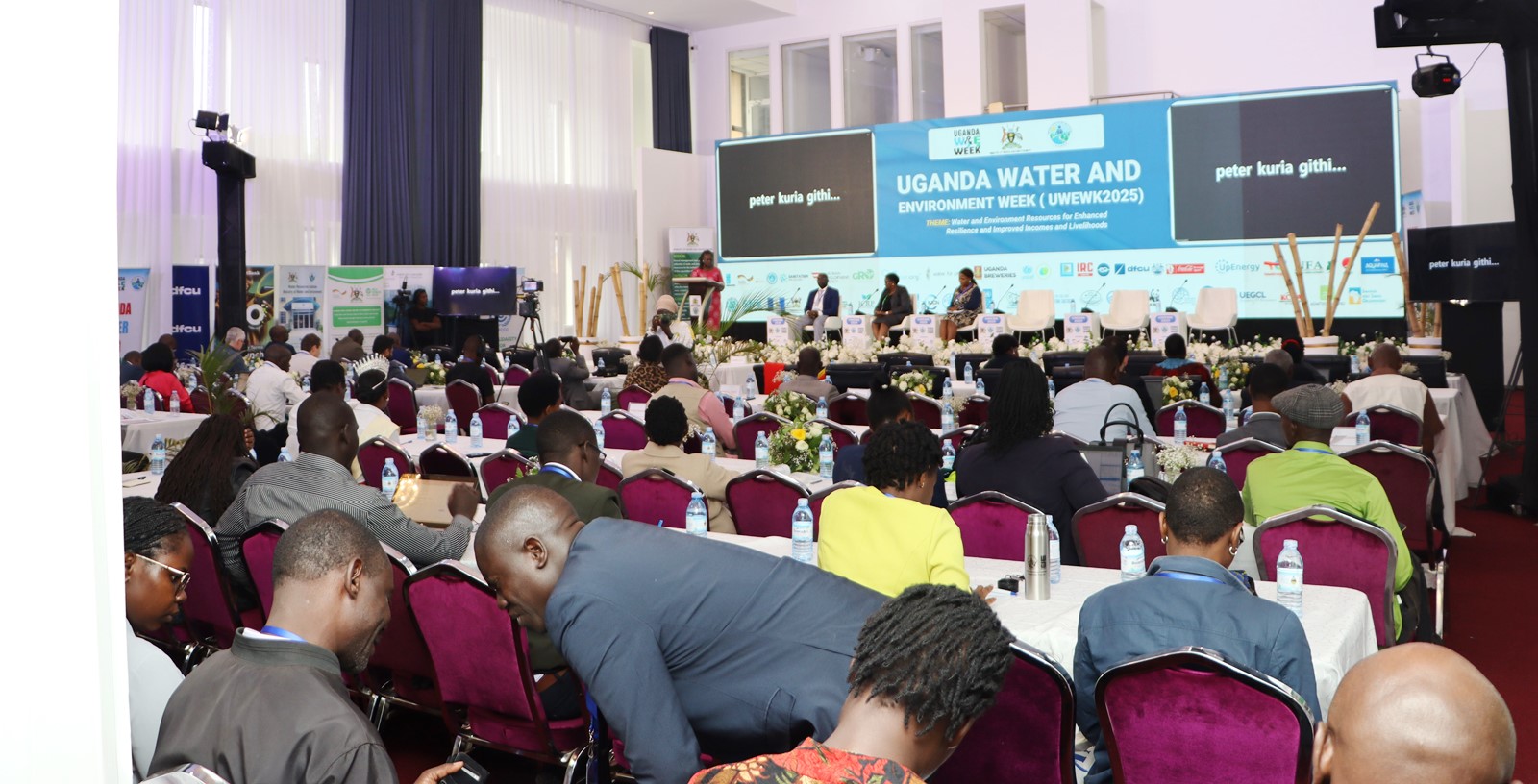
Dr. Babyenda’s findings stress the need for strategic policy interventions to foster widespread adaptation among Uganda’s farmers. His recommendations included educating farmers about the long-term benefits of adaptation, subsidizing adaptation measures to make them more accessible, and improving the efficiency of extension services to better support farmers.
“Policymakers must ensure that farmers are not only informed but equipped with the tools to adapt,” Babyenda emphasized. “This means enhancing extension services, targeting farmers with specific educational programs, and subsidizing key resources to make adaptation more feasible.”
Dr. Babyenda concluded by urging a coordinated effort to build resilience within Uganda’s agricultural sector. He emphasized that these strategies are vital to ensuring the long-term sustainability of agriculture, which is a cornerstone of Uganda’s economy.
“Climate change is a clear and present danger, but through careful adaptation, we can secure the future of Uganda’s agriculture and the welfare of its farmers,” Babyenda said.
The findings of the research are expected to serve as a crucial baseline for future climate adaptation policies and actions in Uganda, aiming to safeguard the livelihoods of millions of farming households affected by climate variability. The paper was authored by Peter Babyenda, Makerere University Uganda; Prof. Jane Kabubo-Mariara, Executive Director, Partnership for Economic Policy and Sule Odhiambo from University of Nairobi, Kenya.
Jane Anyango is the Communication Officer EfD Uganda
You may like
-


Mak News Magazine: February 2026
-


Celebrating Academic Excellence: CoBAMS Presents 975 Graduands at Mak 76th Graduation Ceremony
-


Mak 76th Graduation Ceremony: CoNAS Presents 16 PhDs & Best Performing Male Student in the Sciences
-


Medical graduates urged to uphold Ethical values
-


CAES Presents Overall Best Performing Student in the Sciences & a Record 28 PhDs at the 76th Graduation Ceremony
-


Over 9,200 to graduate at Makerere University’s 76th Graduation
Business & Management
Celebrating Academic Excellence: CoBAMS Presents 975 Graduands at Mak 76th Graduation Ceremony
Published
1 day agoon
February 26, 2026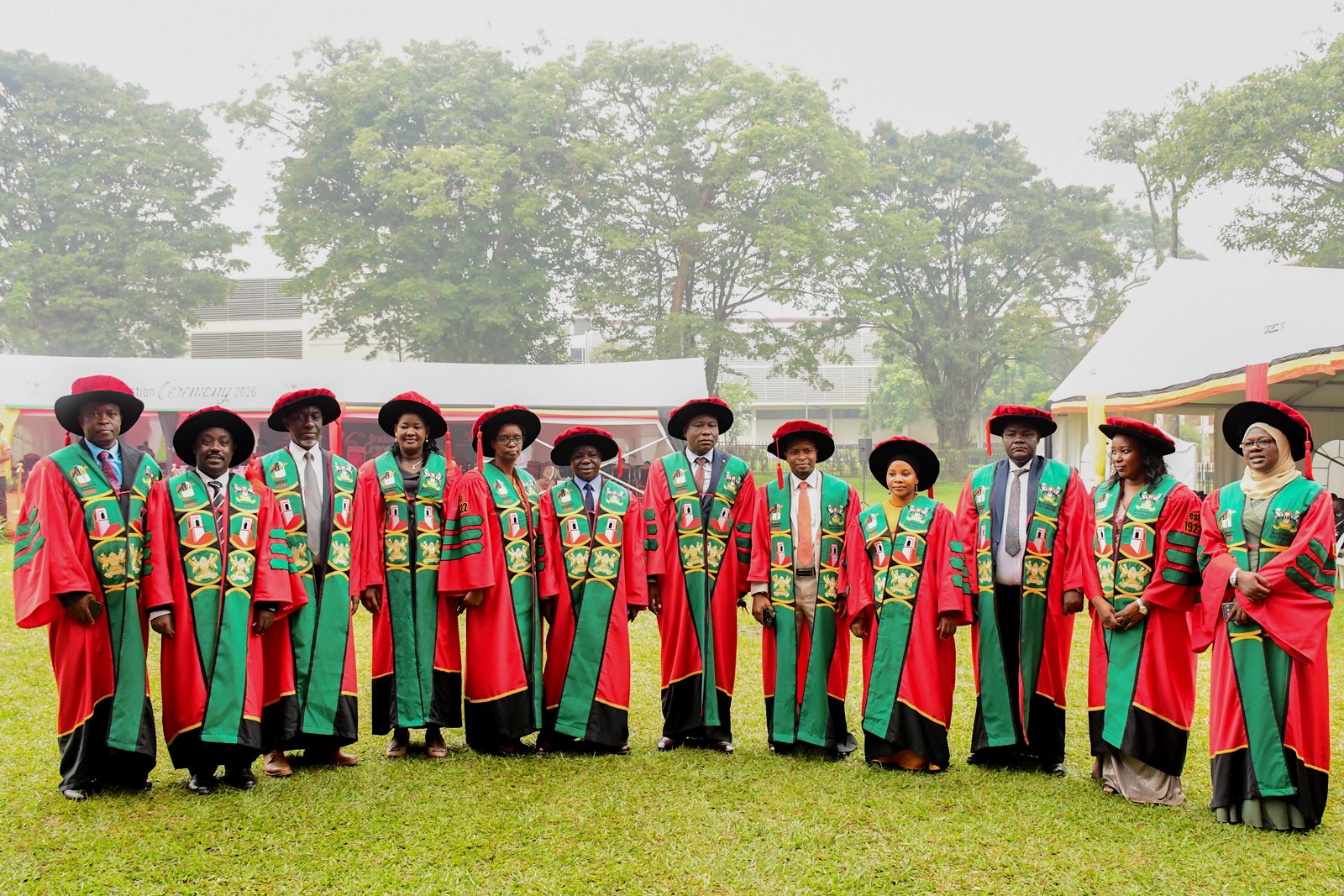
26th February 2026– The third day of Makerere University’s 76th Graduation Ceremony, held on 26th February 2026, underscored the University’s central role in shaping economic thought, business leadership, and public policy in Uganda and beyond. On this day, the College of Business and Management Sciences (CoBAMS) together with Makerere University Business School (MUBS) presented their graduands for the conferment of degrees and award of diplomas.
CoBAMS Graduation Statistics
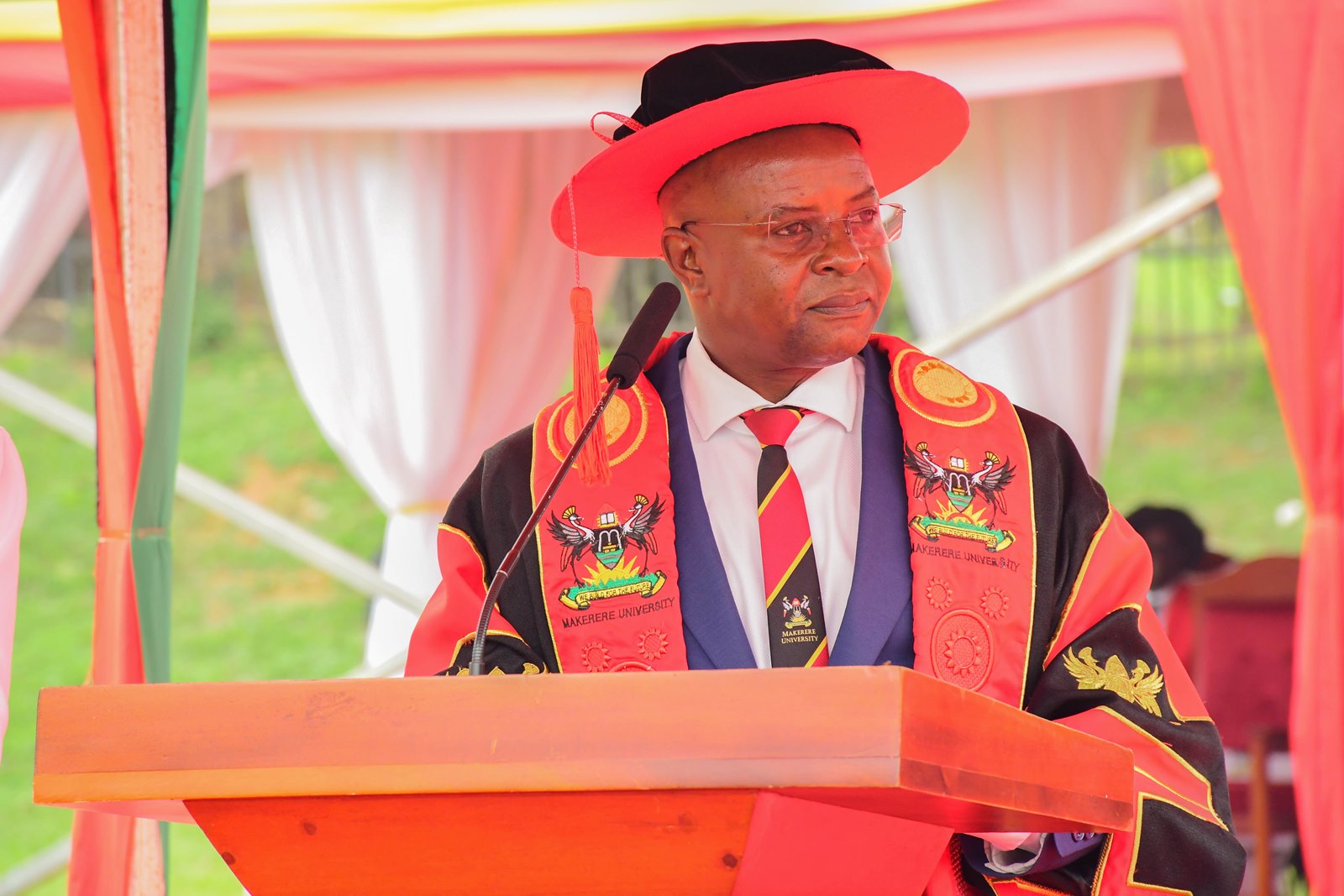
Across the University, a total of 9,295 graduands will be presented during the 76th graduation ceremony (24th to 27th February 2026). The College of Business and Management Sciences presented 975 graduands, comprising 14 Doctor of Philosophy (PhD) degrees, 334 Master’s degrees, 2 Postgraduate Diplomas, and 625 Bachelor’s degrees. This robust academic profile reflects the College’s sustained investment in advanced research, graduate training, and industry-relevant programmes designed to equip graduates with analytical competence, ethical grounding, and leadership capacity required to contribute meaningfully to economic transformation, institutional development, and enterprise growth at national, regional, and global levels.
Prof. Nawangwe emphasized that CoBAMS remains a key pillar in advancing the University’s research agenda. Through strategic partnerships with government ministries, the business community, and the private sector, the College has produced over 60 high-quality research outputs under the CoBAMS Working Paper Series, many of which have been published in internationally recognized peer-reviewed journals. These outputs he said are aligned with the UN Sustainable Development Goals (SDGs), Uganda’s 10-fold National Economic Growth Strategy, and the University’s Strategic Plan, reinforcing CoBAMS’ role in driving evidence-based development.
The Vice Chancellor commended the College for its five dynamic research centres—Entrepreneurship and Innovation; Statistics and Demography; Public Investment Management; the Environment for Development Initiative; and the Centre of Excellence for Africa Climate-Sensitive Macroeconomic Modelling—which collectively form the backbone of the College’s research enterprise. Through these centres, he noted CoBAMS continues to advance high-level scholarship, foster interdisciplinary collaboration, and deepen policy engagement, firmly positioning itself at the forefront of national and regional economic discourse.
In his message to the graduands, Prof. Nawangwe tasked them to become job creators, who are ready to turn challenges into opportunities. He encouraged them to remain proud ambassadors of Makerere University, upholding integrity and excellence, and to utilize their knowledge to transform communities and nations.
“You are all graduating with disciplines that are needed by society. We have equipped you with the knowledge and skills that will make you employable or create your own businesses and employ others. Do not despair. If you cannot find employment, reflect on the immense opportunities around you and raise to the occasion as an entrepreneur,” Prof. Nawangwe stated.
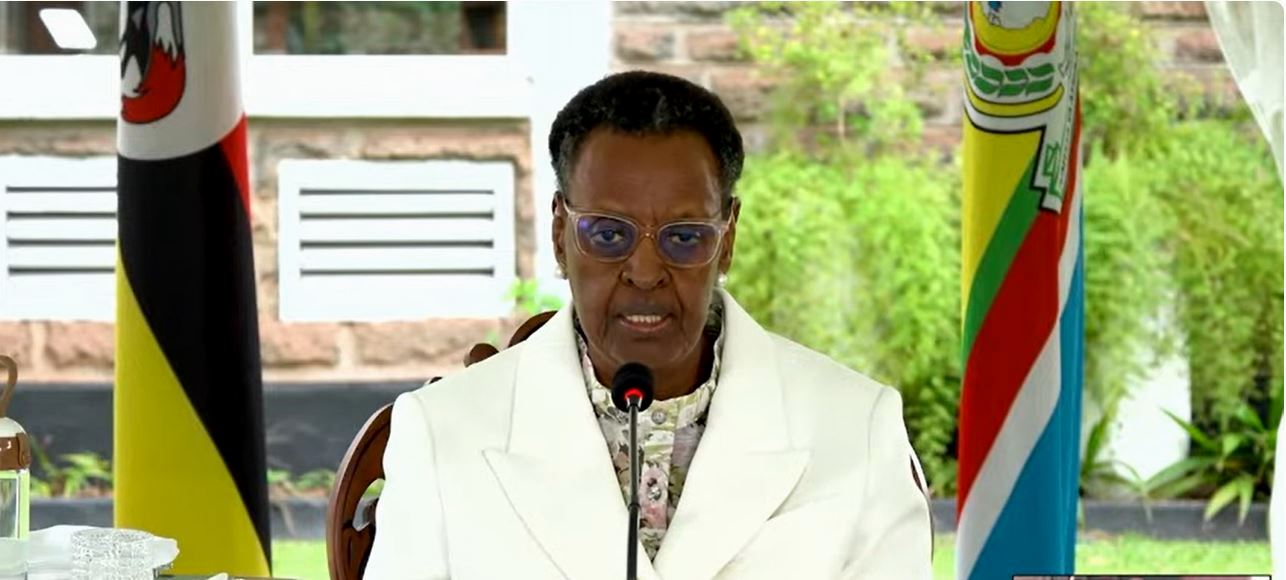
Addressing the congregation, the Guest of Honour, Hon. Janet Kataaha Museveni, First Lady and Minister of Education and Sports commended Makerere University for its pivotal role in transforming lives and shaping Uganda’s future. She congratulated the graduands upon reaching a significant academic milestone and reflected on the broader purpose of higher education in developing both knowledge and character.
She highlighted the success of the Emerging Leaders Programme, launched at Makerere University as a deliberate initiative to cultivate a generation of leaders grounded in values, integrity, and service. Founded on the conviction that higher education must shape both mind and character, the programme equips young people to navigate real-world challenges. She noted that 20 graduates from the inaugural cohort of the Emerging Leaders Programme were being celebrated at the 76th graduation.
“We recognised that our young people face real challenges such as moral decay, violence, addiction, exploitation and sometimes a loss of purpose and direction. The Emerging Leaders Programme was a deliberate commitment to raise a generation of leaders grounded in values, integrity and service to others. Today, 20 graduates represent the early visible fruit of that vision. They have deliberately chosen to build their lives on a foundation of strong moral values and servant leadership,” the Minister said.
The Minister urged graduands to view their achievements not as an end, but as a commissioning. She called upon them to lead with courage, humility, and responsibility, emphasizing that the world needs graduates who embody not just skills and knowledge, but character, integrity, and service. She reminded graduates that as they step into society, they carry the promise of a new Uganda, one where talent, ambition, and knowledge are matched by integrity, purpose, and service,” she exhorted, celebrating the role of higher education in nurturing both excellence and character.
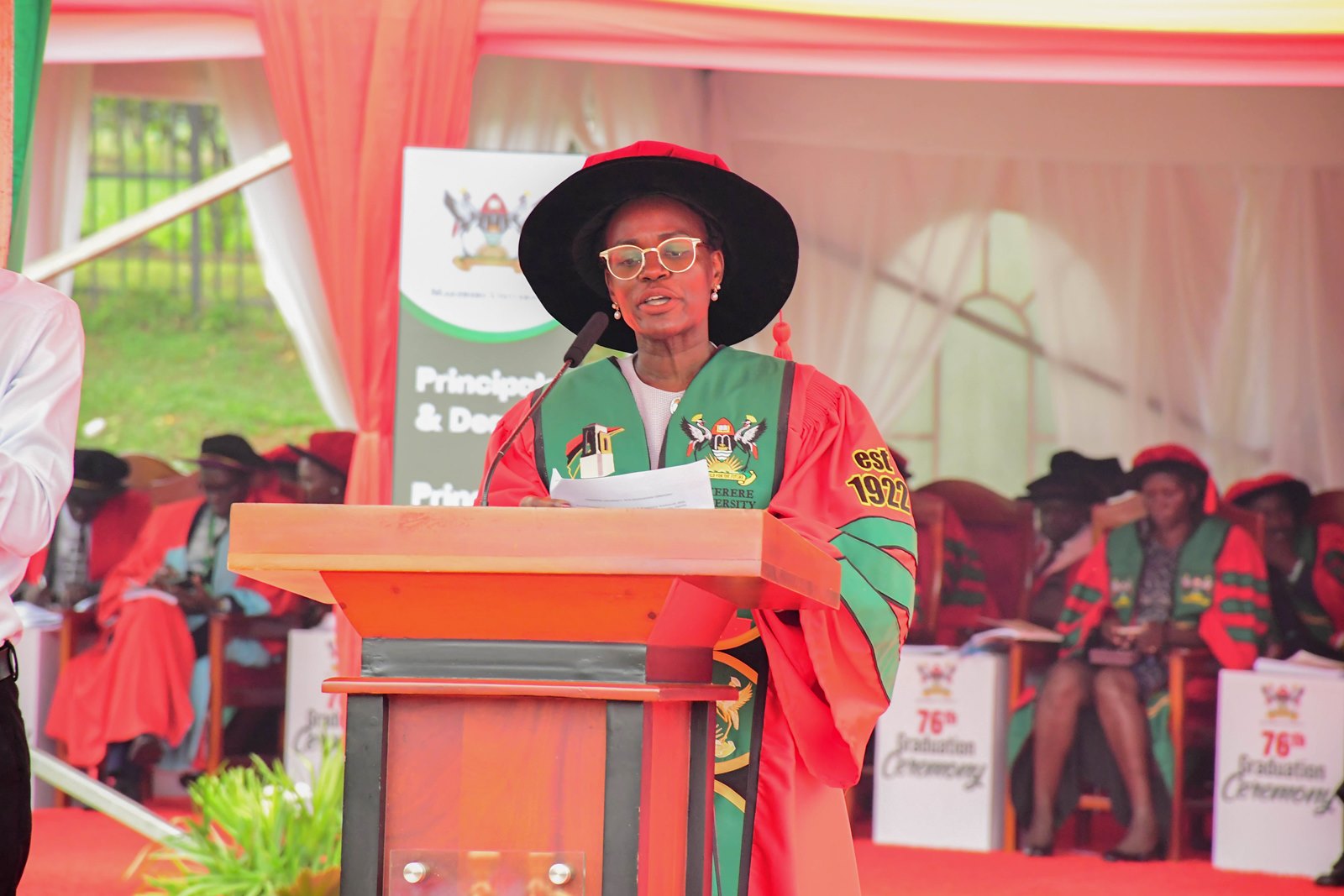
Delivering the commencement address, Dr. Patricia Ojangole, Managing Director of Uganda Development Bank and a proud Makerere University alumnus, lauded the University for equipping graduates with a strong intellectual foundation and the confidence to navigate the complexities of the modern world. She recognized the sacrifices of parents, guardians, and relatives, noting that behind every graduand lies a story of perseverance, encouragement, and unwavering support.
Dr. Ojangole urged the graduands to look beyond traditional employment, highlighting the vast opportunities for entrepreneurship and innovation in today’s digitally connected and globally integrated Uganda. She reminded them that the skills, exposure, and knowledge they possess, position them to create solutions, build enterprises, and drive economic and social transformation.
She emphasized lifelong learning, adaptability, and the cultivation of emotional intelligence and leadership as essential tools for sustained success, noting that the most effective leaders inspire and empower others. Above all, she urged the graduates to guard their integrity, develop strong networks, and remain resilient in the face of setbacks, framing every challenge as an opportunity to strengthen character.
“Learning does not end with this degree. The world of work is constantly evolving—technology advances, markets shift, and customer needs change. Those who stop learning quickly fall behind. Graduates must develop skills in artificial intelligence, data literacy, analytical thinking, forecasting, and strategic planning, while also cultivating emotional intelligence and leadership. These abilities are essential in the 21st-century workplace, where people follow leaders who inspire. Lifelong learning, adaptability, curiosity, and a willingness to embrace change are no longer optional—they are the new currency of corporate and business success,” she submitted.
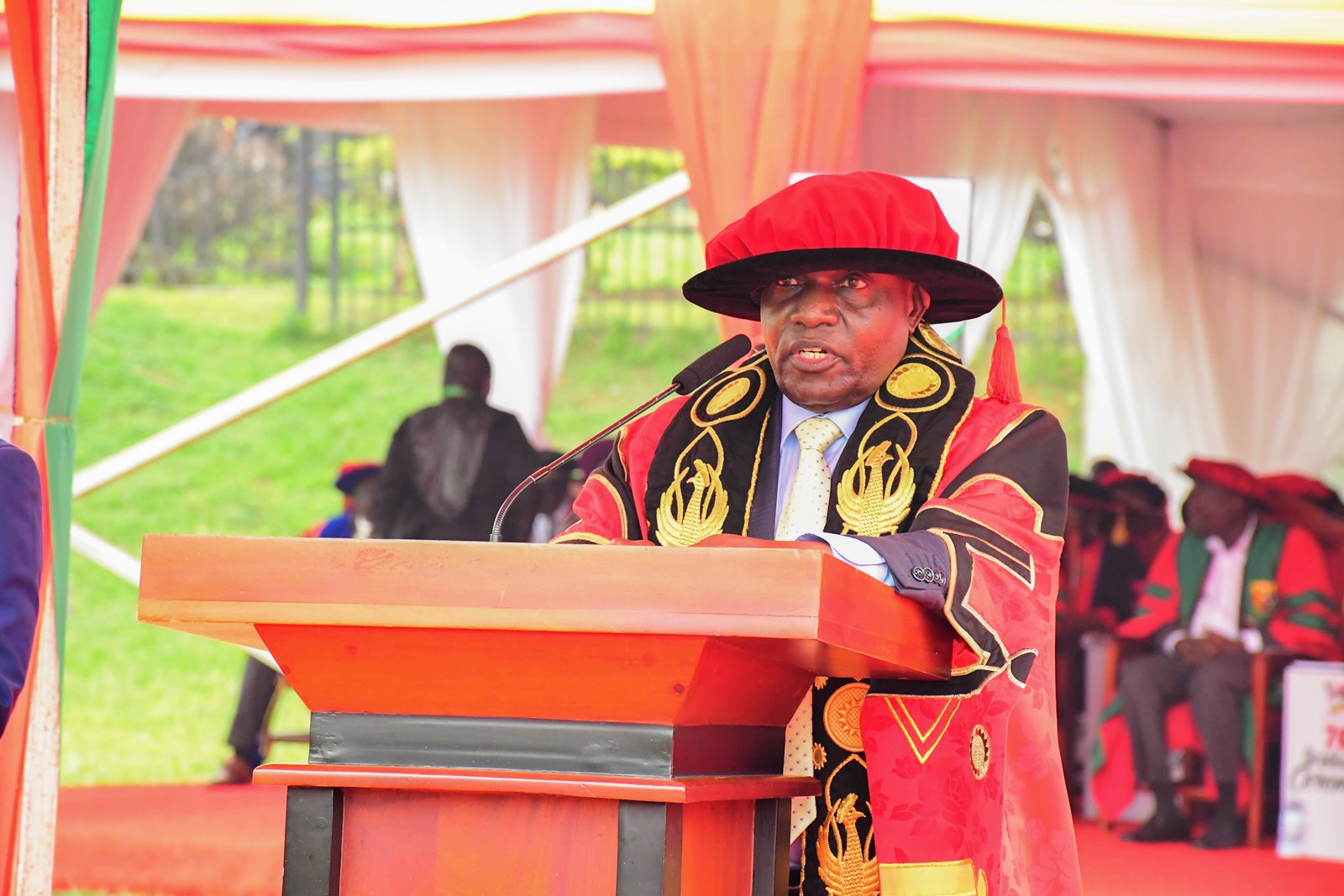
The Makerere University Chancellor, Dr. Crispus Kiyonga urged graduates to view their time at Makerere not only as an academic journey, but as an opportunity to engage with the world around them. He encouraged them to identify opportunities within their communities and the nation at large, highlighting that while some may secure government or private sector jobs, others will need to create their own paths through entrepreneurship.
“Beyond pursuing your courses, seize the opportunities at the university to broaden your knowledge of the world, your country, and the communities in which you live. Be attentive to the opportunities around you—those you can leverage to engage in meaningful and viable activities that bring prosperity,” the Chancellor advised.
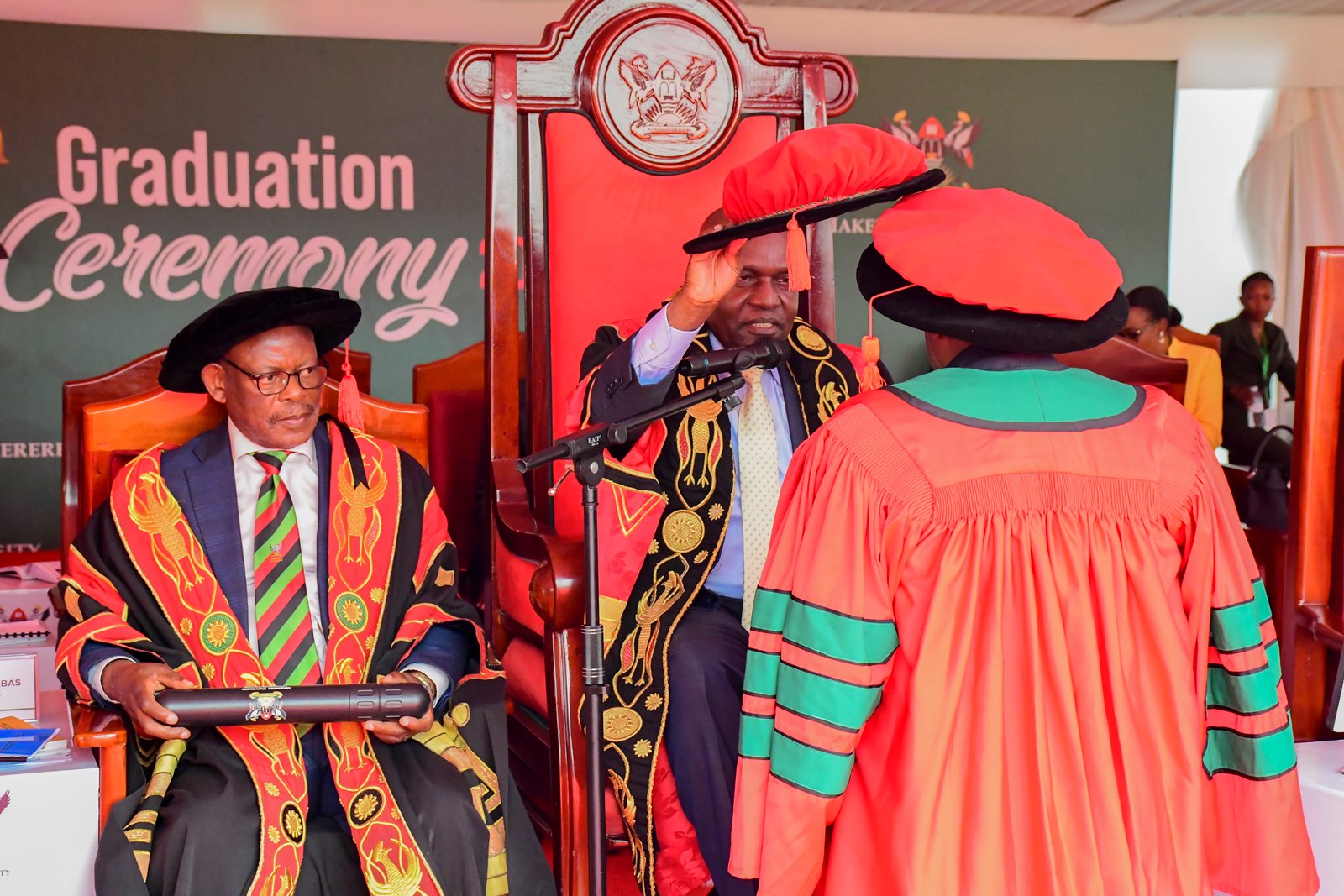
A key highlight of the day was the conferment of the Doctor of Letters (Honoris Causa), of Makerere University upon Dr. Japheth Buleetwa Katto, recognizing him as an Honorary Scholar of Makerere University. A distinguished professional with remarkable achievements, Dr. Katto has made significant contributions to Uganda, the East African region, and beyond, particularly in advancing the accountancy discipline and strengthening the capital markets industry. His work has played a transformative role in Uganda’s social and economic development while also influencing the accountancy profession on a global scale.
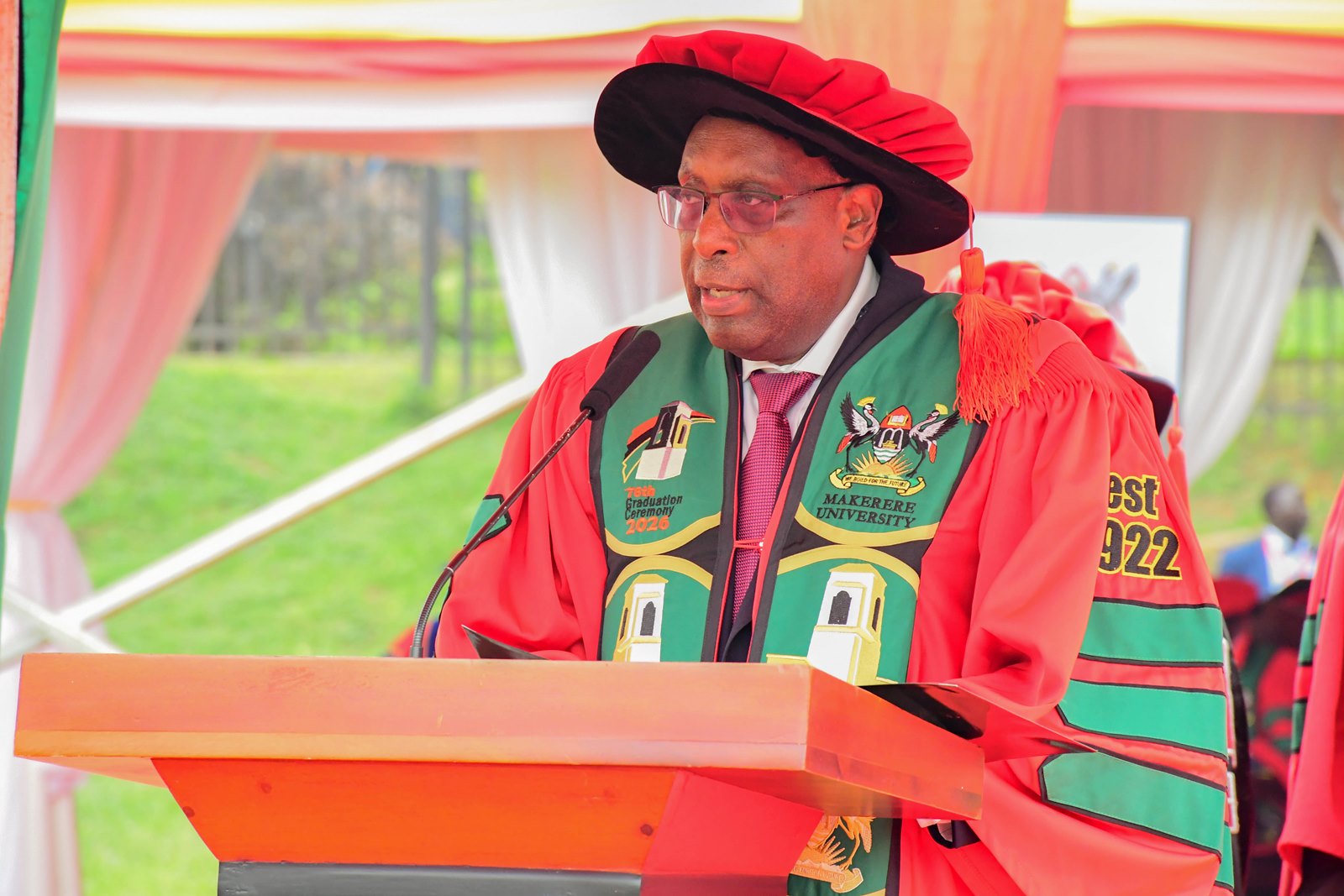
Accepting the Honorary Doctorate Doctorate, Mr. Japheth Buleetwa Katto expressed deep gratitude to Makerere University and those who supported his journey. Reflecting on fifty years in corporate governance and finance, he emphasized a key lesson: integrity, diligence, and ethical leadership are always noticed, and the rewards of sowing excellence will inevitably follow, even if it takes decades.
“This recognition comes as a surprise and brings with it an important lesson, I wish to share with everyone here: people are always watching. They notice when you choose integrity over shortcuts, when you champion good governance even when it is unpopular. They see not only the good, but also the bad and the ugly. We must never forget the eternal law of the harvest: we reap what we sow. If you sow excellence, diligence, and ethics, the harvest—though it may take decades—will always find you,” Dr. Katto said.
Addressing the graduands, Mr. Japheth Buleetwa Katto urged them to embrace the unexpected, recognize that integrity is their greatest strength, and harness the power of networking. He reflected on his own journey, crediting teachers, mentors, colleagues, and family for their support, and encouraged the new graduates to always strive to make a positive impact in everything they do.
Business & Management
Parliament, MoFPD and Makerere Launch Five-Day Training on Integrated Macroeconomic Modelling to Strengthen Fiscal Oversight
Published
2 days agoon
February 25, 2026By
Mak Editor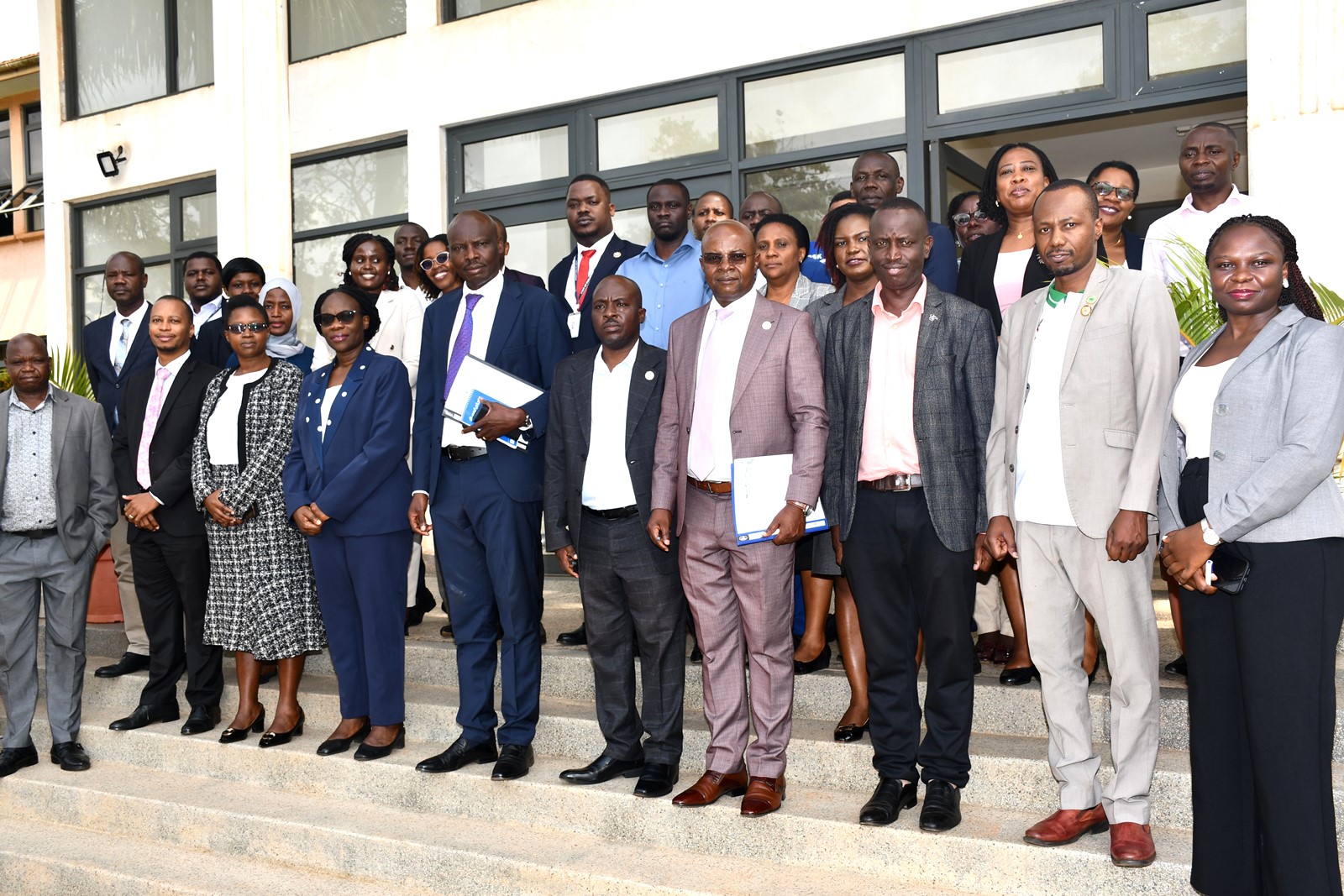
By Wilber Tumutegyereize
In a significant step toward strengthening fiscal governance and enhancing evidence-based decision-making, the Parliament of Uganda, in collaboration with the Ministry of Finance, Planning and Economic Development and Makerere University, has launched a five-day intensive training programme on Integrated Macroeconomic Modelling.
The training brings together staff of the Parliamentary Budget Office (PBO) for a comprehensive capacity-building programme designed to deepen their analytical expertise in assessing national budgets, evaluating fiscal policy options, and generating independent, data-driven advice for Members of Parliament. The initiative forms part of a broader institutional strategy to reinforce Parliament’s oversight role and ensure that national budgeting processes are aligned with Uganda’s development priorities as articulated in the National Development Plan and Parliament’s Strategic Plan.
Strengthening Evidence-Based Fiscal Oversight
Speaking at the opening session on behalf of the Manager of the Public Investment Management (PIM) Centre of Excellence at Makerere University, Dr. Peter Babyenda emphasized that the increasing complexity of Uganda’s fiscal environment demands stronger analytical capacity within Parliament.
“This training comes at a critical time when the demands on Parliament to undertake rigorous scrutiny of fiscal and economic policy have never been greater,” Dr. Babyenda stated.
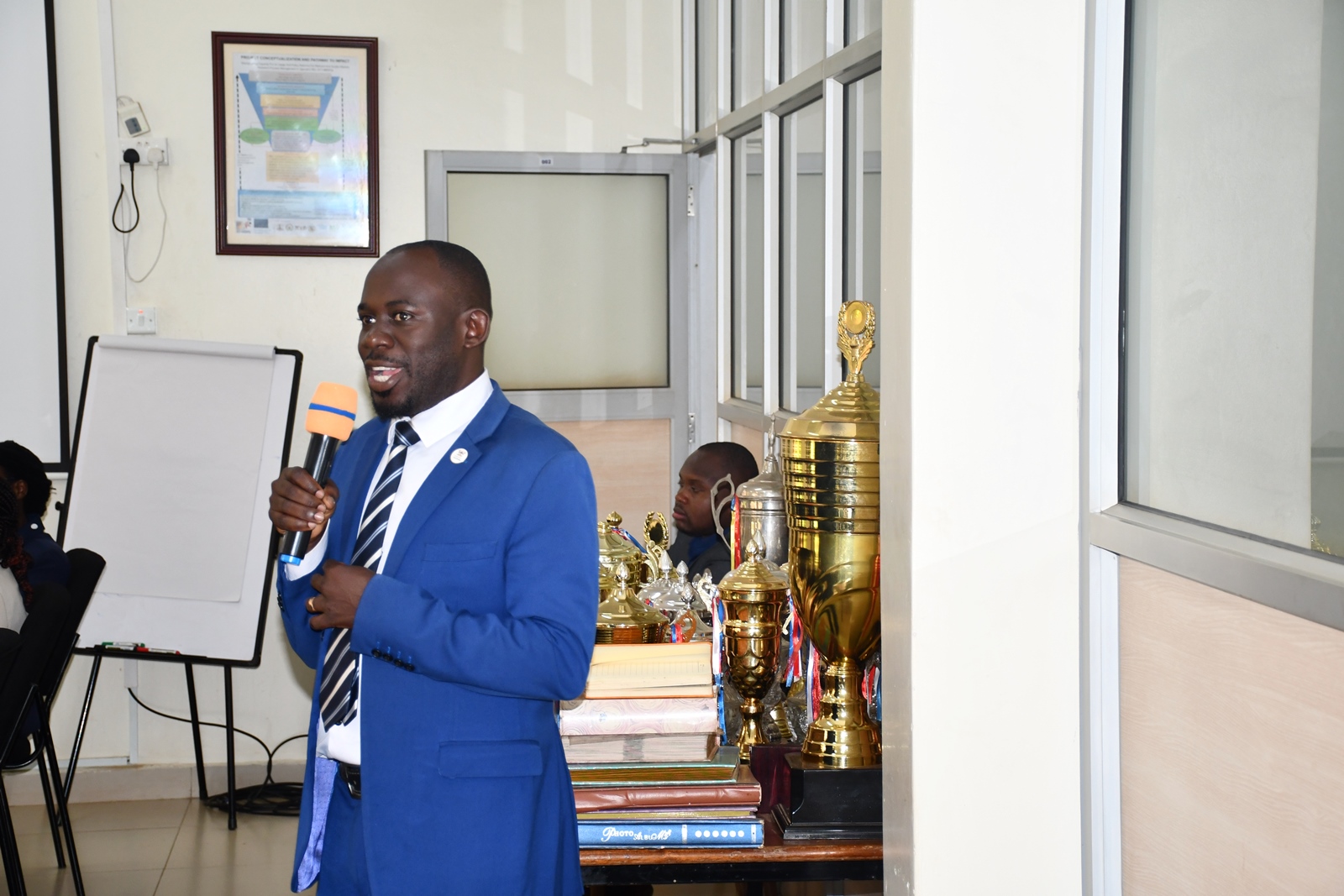
He noted that Parliament’s constitutional mandate—to legislate, appropriate public funds, and oversee government expenditure—requires objective, independent, and technically sound economic analysis. The Parliamentary Budget Office plays a central role in fulfilling this mandate by providing Members of Parliament with timely assessments of revenue projections, expenditure allocations, public debt sustainability, and macroeconomic trends.
Dr. Babyenda explained that the Government’s Integrated Macroeconomic Model provides a holistic framework for understanding the interconnections between economic growth, fiscal policy, public investment, inflation, debt dynamics, and household welfare. By incorporating this model into parliamentary analysis, the PBO will be better positioned to simulate alternative policy scenarios and assess their short- and long-term implications.
Institutional Priorities
Mr. Henry Waiswa, Deputy Clerk to Parliament in charge of Corporate Affairs, contextualized the training within Parliament’s broader institutional reform agenda. He underscored Parliament’s constitutional responsibility to legislate, allocate resources, and oversee the management of public finances.
“Since its establishment under the Budget Act and its anchoring under the Administration of Parliament Act, the Parliamentary Budget Office has become a cornerstone of evidence-based fiscal oversight,” Mr. Waiswa noted.
He observed that Uganda’s public financial management landscape has become increasingly complex, with evolving fiscal pressures, development financing needs, and global economic uncertainties. In such an environment, Parliament must not only examine headline budget figures but also anticipate the macroeconomic and distributional effects of policy decisions on households, businesses, and vulnerable communities.
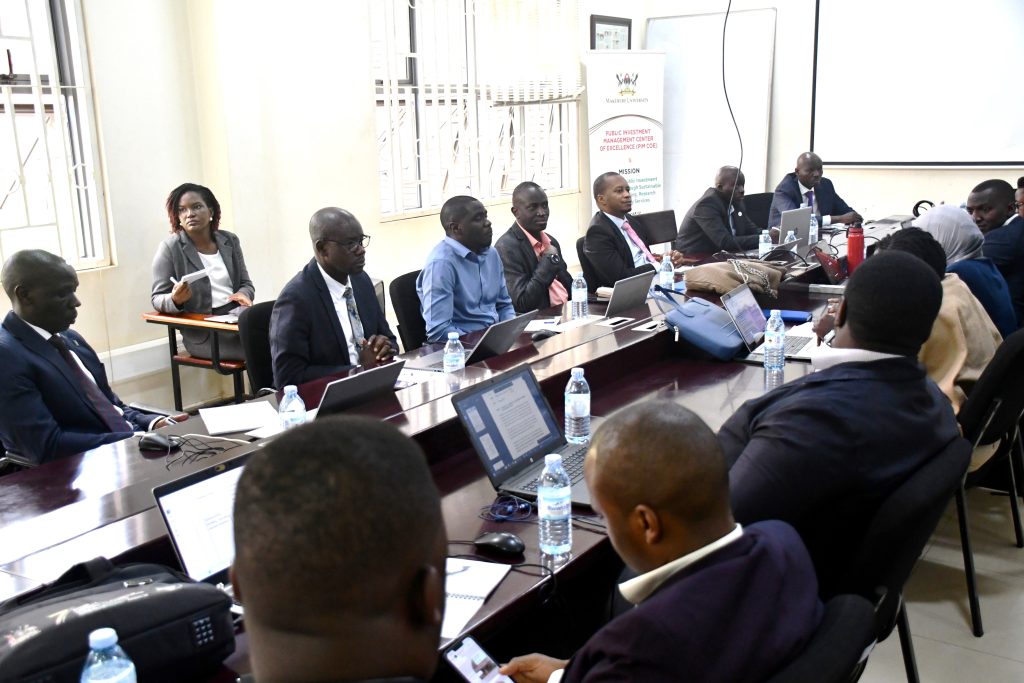
Mr. Waiswa further expressed appreciation to the Ministry of Finance, Makerere University, and the Resource Enhancement and Accountability Programme (REAP) for their technical and financial support in designing and facilitating the training.
Academic Expertise and Analytical Rigor
Professor Edward Bbaale, Director of the PIM Centre of Excellence at Makerere University, highlighted the critical role of academia in strengthening public sector institutions. He emphasized that collaboration between Parliament, the Ministry of Finance, and Makerere University reflects a shared commitment to improving the quality of fiscal governance.
“When our key public institutions work together, we enhance the credibility of economic management and ensure that policy decisions are informed by rigorous analysis,” Professor Bbaale said.
He explained that Integrated Macroeconomic Models combine key economic indicators, such as Gross Domestic Product (GDP), government revenue and expenditure, inflation, debt, investment, and external balances, into a unified analytical framework. These models enable analysts to conduct “what-if” simulations, test policy assumptions, and evaluate trade-offs between competing fiscal priorities.
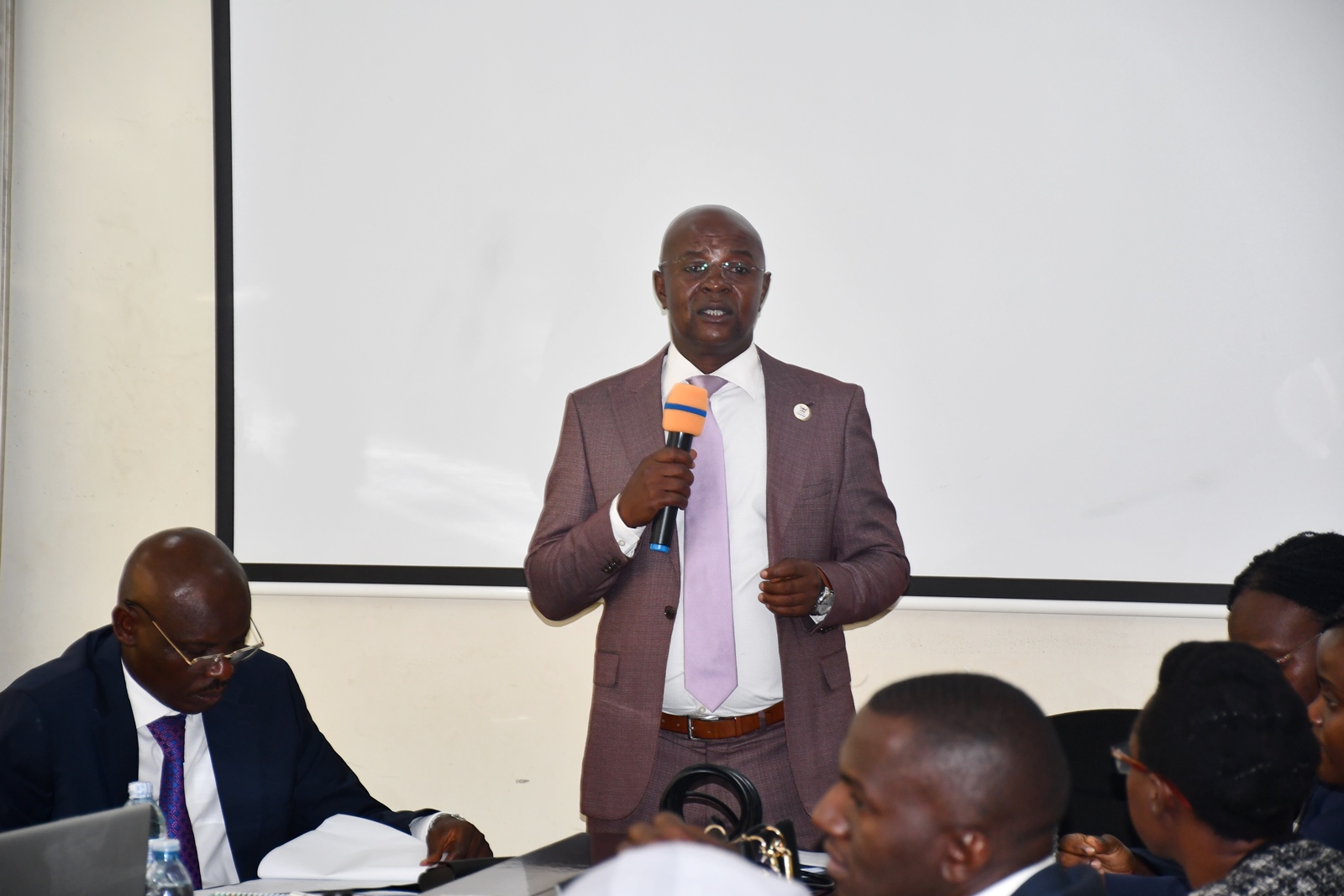
Professor Bbaale urged participants to fully utilize the five-day training to strengthen their technical proficiency and contribute meaningfully to Parliament’s oversight function.
Practical Application and Long-Term Impact
The training programme emphasizes hands-on learning, allowing participants to work directly with the Integrated Macroeconomic Model. Through practical exercises, PBO staff will learn how to:
- Simulate alternative fiscal and macroeconomic scenarios.
- Assess revenue and expenditure implications of policy proposals.
- Evaluate public debt sustainability and fiscal risks.
- Examine distributional impacts on poverty, inequality, and household welfare.
- Develop evidence-based policy briefs for Members of Parliament.
Dr. Babyenda reiterated that the value of the training lies in its practical application.
“The ultimate measure of success will be how effectively participants apply these tools to real parliamentary analysis,” he said. “It is through this application that Parliament can maintain rigorous oversight over public finances.”
A Strategic Investment in Institutional Capacity
By institutionalizing the use of Integrated Macroeconomic Modelling within the Parliamentary Budget Office, Uganda is making a strategic investment in sustainable institutional capacity. The initiative ensures that parliamentary analysts are trained using the same analytical frameworks applied in national fiscal planning, thereby reinforcing both technical quality and independence in budget scrutiny.
As Uganda navigates evolving economic challenges, the strengthened capacity of the PBO will enable Parliament to critically evaluate budget proposals, anticipate policy outcomes, and provide informed, transparent, and accountable oversight of public resources.
The five-day Integrated Macroeconomic Modelling training thus represents a pivotal milestone in advancing Uganda’s commitment to sound fiscal management, democratic governance, and evidence-based policymaking.
Business & Management
Climate variability found to shape malaria trends in Yumbe District
Published
1 week agoon
February 20, 2026
A new study led by scientists from Makerere University School of Public Health has demonstrated that short-term climate variability plays a significant role in malaria transmission in Yumbe District, West Nile sub-region of Uganda. The study, Climate variability and malaria incidence trends in Yumbe District, West Nile Sub-region of Uganda (2017–2021), by Lesley Rose Ninsiima, Rogers Musiitwa, Zaitune Nanyunja, James Muleme, Chris Maasaba, Twahiri Anule, and David Musoke, was published in February 2026 in Malaria Journal through Springer Nature Link.
Today, malaria remains a major public health burden in Uganda, where environmental conditions support sustained transmission. Despite persistent outbreaks in northern Uganda, limited local evidence exists on how the changing climate patterns influence malaria trends. This study addressed that gap by examining five years of malaria surveillance data alongside district-level rainfall and temperature records.

Using routine health facility reports from the District Health Information System (DHIS) and climate data from the Uganda National Meteorological Authority (UNMA), the researchers applied time-series analysis to assess seasonal patterns and delayed climate effects on malaria incidence. Between 2017 and 2021, Yumbe District recorded 2,066,711 malaria cases, with transmission showing clear seasonal peaks between May and July and September and November, aligning with rainy periods.
Their analysis showed that rainfall was the strongest climatic driver of malaria transmission. Increased rainfall was associated with higher malaria cases approximately one month later, reflecting the time needed for mosquito breeding and transmission cycles. In contrast, higher minimum temperatures were linked to reduced malaria incidence, while maximum temperature showed no significant effect. Together, rainfall and minimum temperature explained a substantial proportion of variation in malaria cases, highlighting malaria’s sensitivity to short-term climate fluctuations.
The study findings underscore the value of integrating climate information into malaria surveillance and early warning systems to anticipate transmission peaks and guide timely interventions. Strengthening collaboration between public health and meteorological sectors, the researchers argue, could improve preparedness and support climate-informed malaria control strategies in high-burden settings.
Further details: https://link.springer.com/article/10.1186/s12936-026-05824-0
Trending
-

 Humanities & Social Sciences5 days ago
Humanities & Social Sciences5 days agoMeet Najjuka Whitney, The Girl Who Missed Law and Found Her Voice
-

 Health1 week ago
Health1 week agoUganda has until 2030 to end Open Defecation as Ntaro’s PhD Examines Kabale’s Progress
-

 Agriculture & Environment1 week ago
Agriculture & Environment1 week agoUganda Martyrs Namugongo Students Turn Organic Waste into Soap in an Innovative School Project on Sustainable Waste Management
-

 General4 days ago
General4 days ago76th Graduation Highlights
-

 General1 week ago
General1 week agoMastercard Foundation Scholars embrace and honour their rich cultural diversity
